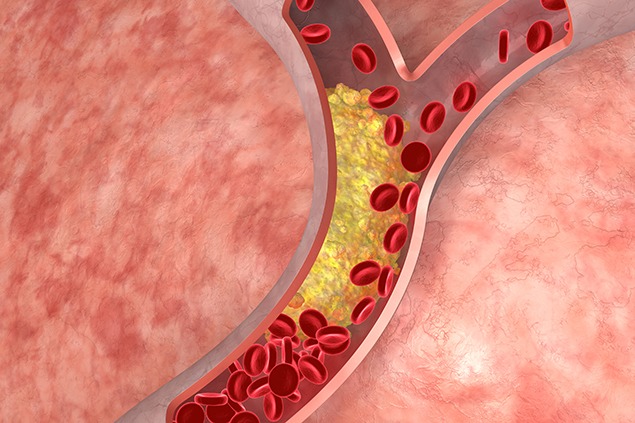The Bodybuilder’s Dilemma – Are Carbohydrates Friend or Foe?
Carbs: Bodybuilder Buddy or Ball and Chain? Unlocking the Truth…
Carbs: Bodybuilder Buddy or Ball and Chain? Unlocking the Truth About Carbohydrates and Muscle
Alright, let’s be honest, in the bodybuilding world, protein gets all the glory, doesn’t it? It’s the rock star, the headliner, the one everyone’s talking about. And rightly so – protein is crucial for building and repairing those hard-earned muscles. But let me tell you something, there’s another that’s just as vital for your gains, your energy, and your overall performance: carbohydrates.
The very word can send shivers down the spine of some bodybuilders. Are they the secret weapon to fuel those killer workouts and pack on muscle? Or are they the sneaky saboteurs, the reason you’re not seeing that six-pack emerge, the gateway to unwanted fat gain? It’s a dilemma: are carbohydrates a bodybuilder’s friend… or foe?
Carbohydrates are not the enemy. In fact, they are essential allies in your bodybuilding journey. But – and there’s always a ‘but’ isn’t there? – you need to understand them, respect them, and use them strategically. Treat carbs right, and they’ll be your best workout buddies.
Carb Crash Course: Back to Basics (But Make it Relevant to Muscle!)
First things first, let’s get a quick carb education, bodybuilding style. What exactly are these things we call carbohydrates? In simple terms, they are your body’s primary source of energy. Think of them as the fuel in your tank. When you eat carbs, your body breaks them down into glucose, which is basically sugar that your cells can use for energy. Now, carbs come in different forms, and this is where things get interesting (and where the “friend or foe” debate really kicks in).
We generally categorize carbs into three main types:
- Simple Carbohydrates (Sugars): These are the quick-hit carbs. Think sugary drinks, sweets, white bread, pastries, and even some fruits. They’re digested rapidly and cause a quick spike in blood sugar.
- Complex Carbohydrates (Starches): These are your slow-burn carbs. We’re talking whole grains (brown rice, oats, quinoa), starchy vegetables (potatoes, sweet potatoes), and legumes (beans, lentils). They take longer to digest, providing a more sustained release of energy and a gentler rise in blood sugar.
- Fibre: Often lumped in with carbs, fibre is technically a type of carbohydrate that your body can’t digest. But don’t dismiss it! Fibre is a superstar for gut health, satiety (feeling full), and regulating blood sugar. Think vegetables, fruits (especially with skins), and whole grains.
Now, for bodybuilders, the real magic of carbohydrates lies in their role in glycogen storage. Glycogen is essentially your body’s stored form of carbohydrates. Think of it like your emergency fuel reserves, kept mainly in your muscles and liver. When you’re smashing out reps in the gym, going hard on the weights, or pushing through that intense cardio session, your body is primarily using glycogen for fuel. You’re dipping into those energy reserves to power your performance.
Why is Glycogen So Crucial for Bodybuilders?
Imagine trying to drive a car on empty. It’s not going to get you very far, is it? Same with your workouts. If your glycogen stores are depleted, you’re going to hit a wall. Your energy will crash, your strength will plummet, and you’ll be struggling to finish your sets, let alone push for personal bests. Adequate glycogen levels are essential for:
- Fuelling Intense Workouts: Glycogen provides the readily available energy your muscles need for those high-intensity, muscle-building sessions.
- Boosting Performance: Full glycogen stores mean you can train harder, lift heavier, and push for longer, leading to greater muscle growth over time.
- Promoting Muscle Recovery: After a gruelling workout, your glycogen stores are depleted. Consuming carbohydrates post-workout is crucial for replenishing these stores, kickstarting the recovery process, and setting the stage for muscle growth. Think of it as refilling your fuel tank after a long drive.
So, carbs are starting to sound friendly. They’re the fuel, the energy source, the recovery booster. But… here comes the ‘but’ again. This is where we need to talk about the dark side of carbs – or rather, the potential pitfalls of certain types of carbs.
The Simple Carb Siren Song: Sweet Temptation, Bitter Consequences?
Simple carbohydrates. They taste so good. That sugary rush, that instant energy boost… it’s tempting, I know. Think of them as the sirens of the dietary world, they can lead you onto the rocks if you’re not careful.
The problem with simple carbohydrates lies in how your body processes them. They are digested and absorbed incredibly quickly, leading to a rapid spike in blood sugar levels. Now, your body is a fantastic machine, and it’s designed to keep your blood sugar within a healthy range. When your blood sugar shoots up like a rocket, your pancreas kicks into action and releases insulin.
Think of insulin as the traffic cop of your bloodstream. Its job is to tell your cells to open and take in that excess sugar from your blood. Insulin is a pretty amazing hormone – it’s vital for life. And in the context of bodybuilding, insulin has some anabolic (muscle-building) properties too, helping to shuttle nutrients into muscle cells. Sounds great, right?
When you consistently bombard your body with large amounts of simple carbohydrates, you create a blood sugar rollercoaster. You get that initial spike, followed by a rapid crash as insulin does its job too effectively, pulling too much sugar out of your bloodstream. This crash can leave you feeling sluggish, tired, irritable, and craving – you guessed it – more sugary carbs to get that blood sugar back up again. It’s a vicious cycle.
The Downward Spiral: Insulin Resistance, Diabetes, and Fat Storage
But the blood sugar rollercoaster is just the tip of the iceberg. Over time, consistently overloading your system with simple carbs can lead to more serious problems. Your cells can start to become less responsive to insulin’s signals. This is called insulin resistance. Imagine your cells are like doors, and insulin is the key. With insulin resistance, the locks on those doors become a bit rusty, and insulin must work harder and harder to get the doors to open and let sugar in.
Insulin resistance is a major precursor to Type 2 Diabetes. It means your body is struggling to regulate blood sugar effectively, and over time, this can lead to chronically high blood sugar levels, with all sorts of nasty health consequences. And for a bodybuilder, insulin resistance is bad news on multiple fronts. Not only is it detrimental to your overall health, but it also impairs muscle protein synthesis. Remember, insulin has anabolic properties – but if your cells are resistant to it, you lose out on those muscle-building benefits.
And let’s not forget the dreaded fat storage. When you consume more carbohydrates than your body needs for immediate energy or glycogen replenishment, guess what happens to the excess? Yep, your body converts it into fat and stores it away for a rainy day (or, more accurately, for those stubborn fat deposits you’re trying to get rid of!). Simple carbs, especially when consumed in excess, are easily converted to fat because of their rapid impact on blood sugar and insulin.
Complex Carbs to the Rescue: The Bodybuilder’s Best Carb Allies
Okay, so simple carbs can be a bit of a minefield. Carbohydrates as a whole are not the enemy. In fact, complex carbohydrates are your best friends in the bodybuilding game. These are the slow-burning, sustained-energy heroes that will fuel your workouts, support your recovery, and keep your blood sugar on an even keel.
Think of complex carbs as the reliable, steady energy source. They are digested more slowly, leading to a gradual and sustained release of glucose into your bloodstream. This means:
- Sustained Energy Levels: No more blood sugar spikes and crashes. Complex carbs provide a consistent energy supply throughout your day and your workouts.
- Improved Workout Performance: You’ll have the stamina and endurance to power through those longer, tougher training sessions.
- Better Blood Sugar Control: Complex carbs help to keep your blood sugar stable, minimizing insulin spikes and crashes, and reducing the risk of insulin resistance.
- Fibre Power: Many complex carb sources are also rich in fibre, which is fantastic for digestion, satiety, and overall health.
What are some top-notch complex carb choices for bodybuilders? Load up on these:
- Whole Grains: Oats (especially steel-cut or rolled), brown rice, quinoa, whole wheat bread (in moderation), barley.
- Starchy Vegetables: Sweet potatoes, potatoes (especially with skin), butternut squash, pumpkin.
- Legumes: Beans (kidney beans, black beans, chickpeas), lentils, peas.
- Some Fruits (in moderation): Fruits are a mix of simple and complex carbs, but they also pack in vitamins, minerals, and antioxidants. Berries, apples, pears, and bananas are good choices.
Timing is Everything: Strategic Carb Intake for Bodybuilding Success
Now, let’s talk strategy. It’s not just what carbs you eat, but when you eat them that can make a big difference in your bodybuilding results. Carb timing is a key weapon in your arsenal.
- Pre-Workout Carbs (Fuelling the Fire): Before your workout, you want to top up those glycogen stores and provide readily available energy for your muscles. Focus on complex carbs in your pre-workout meal, about 1-2 hours before you train. Think oats, brown rice, sweet potato. A small amount of faster-digesting carbs (like a piece of fruit) can also be beneficial closer to your workout for a quick energy boost.
- Post-Workout Carbs (Recovery and Replenishment): This is the golden window for carb intake. Immediately after your workout, your muscles are like sponges, ready to soak up nutrients and replenish depleted glycogen stores. This is the one time when a mix of simple and complex carbs can be beneficial. The simple carbs can help to quickly spike insulin, which, in this post-workout context, is a good thing! It helps to shuttle glucose and amino acids into your muscle cells for recovery and growth. Think a protein shake with some fruit, or a small amount of white rice or even a touch of dextrose (a simple sugar often found in post-workout supplements). Don’t go overboard on the simple carbs, but a small amount in this window can be strategically helpful. Follow up with a more balanced meal containing complex carbs and protein a bit later.
- Carbs Throughout the Day (Sustained Energy and Balance): For the rest of your day, prioritize complex carbs as your main carb source. Spread your carb intake throughout your meals to maintain stable blood sugar levels and consistent energy. Focus on those whole grains, starchy vegetables, and legumes. Limit simple sugars to occasional treats and be mindful of portion sizes.
Finding Your Carb Sweet Spot: It’s Personal!
Ultimately, there’s no one-size-fits-all answer to the carb question for bodybuilders. Your individual carbohydrate needs will depend on:
- Your Training Intensity and Volume: The more intense and frequent your workouts, the more carbs you’ll generally need to fuel them and recover.
- Your Body Composition Goals: If you’re in a bulking phase and aiming to gain muscle mass, you’ll likely need to consume more carbs than if you’re in a cutting phase trying to lose fat.
- Your Metabolism and Insulin Sensitivity: Some people are naturally more insulin sensitive than others and can tolerate carbs better. Others may need to be more cautious with carb intake.
- Your Individual Preferences and Dietary Approach: Some bodybuilders thrive on higher-carb diets, while others do better with lower-carb approaches. Experiment and find what works best for you.
Listen to your body! Pay attention to how you feel when you eat different types and amounts of carbs. Are you feeling energized and performing well in your workouts? Are you recovering effectively? Or are you experiencing energy crashes, excessive fat gain, or digestive issues? Adjust your carb intake accordingly.
The Verdict: Carbs – Friend, Not Foe
So, are carbohydrates a bodybuilder’s friend or foe? The answer, emphatically, is friend! But they are a nuanced friend, a powerful ally that needs to be understood and respected. Carbohydrates are not something to be feared or eliminated. They are essential for fuelling your workouts, supporting muscle recovery, and optimizing your bodybuilding performance.
The key is to be smart about your carb choices. Prioritize complex carbohydrates as your main carb source. Limit simple sugars to strategic moments like post-workout (and even then, be mindful). Time your carb intake to maximize energy for workouts and support recovery. And find your own carb sweet spot based on your individual needs and goals.
Disclaimer: This blog post is crafted for informational purposes and isn’t an endorsement of any supplements. Consultation with professionals is vital when making health or athletic decisions.







